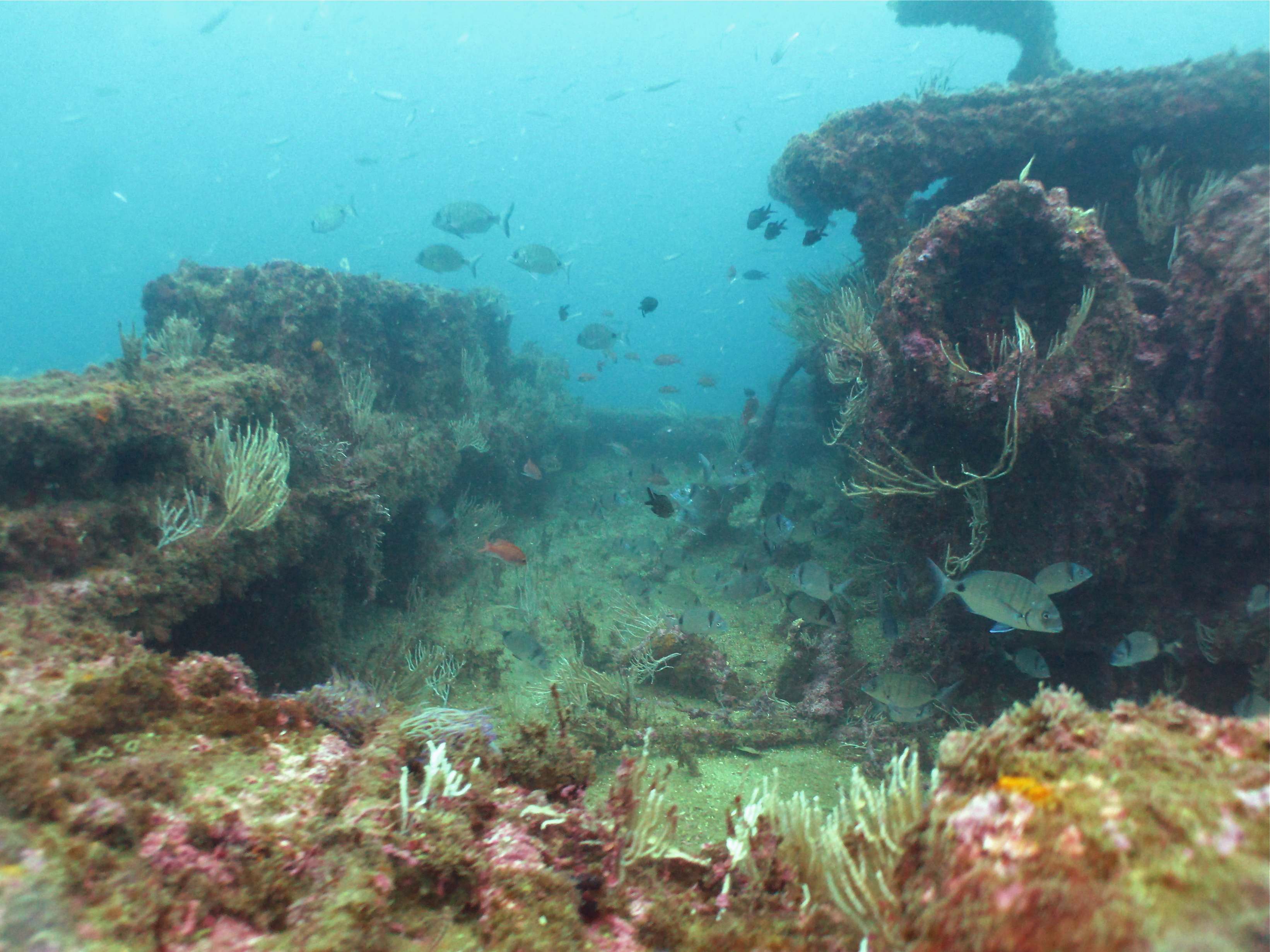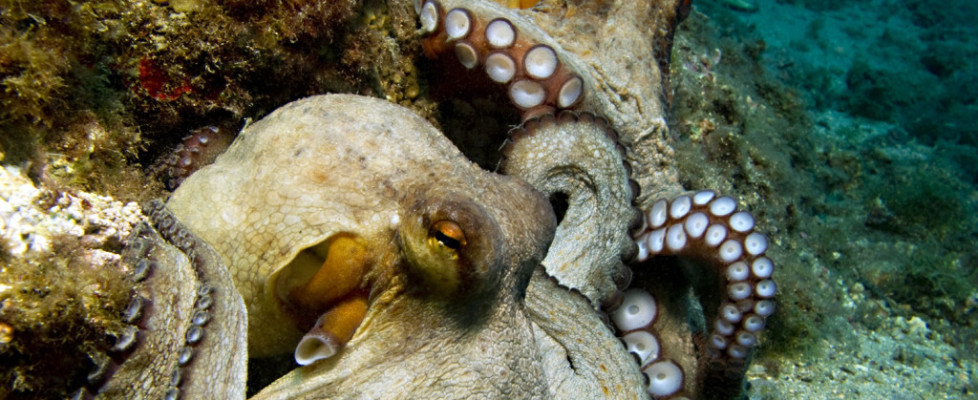LOVE ON THE COSTA: The Strange and Wonderful World of Octopus Sex
By Simon Bell, Simply Diving Dive Operations Manager
Look at the following photo and it’ll be hard not to miss a huge, eight-legged cephalopod atop a rock. Look even closer and the more taxonomically-minded among you will see it’s the humble Octopus vulgaris, or common octopus to the non sea-dweller.
But look even closer still and you’ll see a second octopus hiding under the rock…

It was a normal day’s scuba diving among the fascinating reefs and historic shipwrecks of Gibraltar. As normal as drifting around in inner space, breathing from life support equipment that’s strapped to your back while surrounded by hundreds of different species of marine life, can be.
Suddenly one of the dive guides spotted something very unusual and pointed frantically to what seemed from a distance to be an oversized sponge attached to a boulder. As mesmerising as sponges genuinely are, it turned out to be something much more compelling, for what was on show – right before our very eyes – was some full-on, hardcore, 18 certificate octo love. Yep, the extremely rarely seen act of octopus sex.
What appears at first to be nothing more than a drawn-out arm-wrestle between two octopuses* actually results in more than just bragging rights for the winner.
The partly hidden octopus seen here is the female who is safely ensconced in her den that she has prepared for her soon-to-be new arrivals. She has taken tight hold of the male’s hectocotylus. This is the third right arm that is specially adapted for this very act. And it’s one that he’s about to lose for good. (Cool side note: Scientists have found females containing multiple arms from males in them, which is evidence of male competition.)
The star of our particular photo has, some moments before we arrived, deposited a sperm sack in the female’s oviduct or mantle cavity. We weren’t able to hang around too long on this particular occasion, but this “embrace” could have lasted for several hours.

Once the sperm packet has been deposited, the male will eventually let go of his tentacle and, sadly, die days later. Other octopus species meanwhile are luckier and may grow back their hectocotylus for more mating opportunities over their short life span of 1 to 5 years.
The female then retires to her den and lays tens of thousands of eggs, which she weaves into strings and attaches to the roof of her underwater dwelling. She keeps the eggs clean and oxygenated by blowing jets of water over them and is unable to leave her den to forage for food during this time.
After about a month, the eggs hatch and the weakened mother octopus – who has not eaten a single morsel during the entire ordeal – dies, leaving the newborns to fend for themselves.
Careful not to disturb the amorous pair in this all-important stage of their life-cycle, we took what photos we could, made our excuses and left them well and truly in peace.
It turned out to be far from an ordinary dive and an experience we may never have the honour to witness firsthand in our lives ever again.
*The correct plural of octopus, which is Latin in origin. The common misconception is that the plural of octopus is octopi. However, this would make the word Greek in origin. Which it isn’t.

- A Psychedelic Trip With The Smallest Of Friends - 13th October 2015
- A Giant Fish By Any Other Name - 7th April 2015
- LOVE ON THE COSTA: The Strange and Wonderful World of Octopus Sex - 26th February 2014


26th February 2014 @ 10:26 pm
Great blog 🙂 very jealous gonna have to come over and pay you a visit soon xx